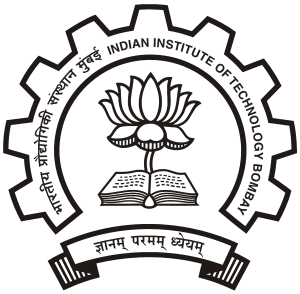|
|
This semester I am teaching MA 812: Algebra-II.
This is a course for first year Ph.D. students, however, all Ph.D. students are encouraged to attend the classes.
Last semester, I had taught MA 811: Algebra-I and this course takes up from where we left in the last semester.
Algebra provides axiomatic structures; groups, rings, vector spaces, modules, to quote a few; that aid in studying other branches of mathematics.
Our aim in the course is to learn linear algebra, including symmetric and alternating forms, and we will conclude the course with representations of finite groups.
While studying linear algebra, we try to do it in general as much as possible. That is, we work over a general commutative ring for most of the time instead of the conventional setting of working over a field.
General information:
- It is necessary to have 80% of attendance in this course.
- The moodle page for the course should get ready soon.
Make sure you enroll for the course to receive all updates.
- You are all encouraged to meet me personally to discuss any difficulty that you may be facing.
You may drop me an email to take an appointment or just show up in my office.
|
Schedule:
|
All the lectures will be held from 11 am till 12.30 pm on Wednesdays and Fridays.
The venue is the room 105 in the mathematics department.
|
Textbook & reference books:
|
We are going to follow the Algebra book for the course.
Apparently there are multiple uses of it but we will concentrate on the first one.
There are many good books on the subject.
There are the classics by Jacobson (Basic algebra I-II and Lectures in abstract algebra I-III).
And then there are somewhat modern ones by Cohn (Basic alegbra and Further algebra and applications) and Knapp (Basic algebra and Advanced algebra).
You may also want to take a look at the encyclopaedia by Shafarevich on the subject.
You may follow any of these or any other book for problem solving and/or for reading more on algebra.
|
Course-plan:
This is the prescribed syllabus of the course.
We will try to complete this and will also try to learn something more than this.
|
Valuations and completions: definitions, polynomials in complete fields (Hensel's Lemma, Krasner's Lemma), finite dimensional extensions of complete fields, local fields, discrete valuations rings.
Transcendental extensions: transcendence bases, separating transcendence bases, Luroth's theorem. Derivations.
Artinian and Noetherian modules, Krull-Schmidt theorem, completely reducible modules, projective modules, Wedderburn-Artin Theorem for simple rings.
Representations of finite groups: complete reducibility, characters, orthogonal relations, induced modules, Frobenius reciprocity, representations of the symmetric group.
|
|
Course calendar:
This course calendar is subject to revision during the semester.
| Week |
Monday |
Tuesday |
Wednesday |
Thursday |
Friday |
Saturday |
Sunday |
| 1 |
Jan 4
|
Jan 5
| Jan 6
§§ XII.1--XII.3 |
Jan 7
|
Jan 8
Adams.I |
Jan 9
|
Jan 10
|
| 2 |
Jan 11
|
Jan 12
|
Jan 13
|
Jan 14
Tutorial 1 |
Jan 15
|
Jan 16
|
Jan 17
|
| 3 |
Jan 18
|
Jan 19
|
Jan 20
Tutorial 1 is due |
Jan 21
|
Jan 22
|
Jan 23
|
Jan 24
|
| 4 |
Jan 25
|
Jan 26
|
Jan 27
|
Jan 28
|
Jan 29
|
Jan 30
Quiz 1 |
Jan 31
|
| 5 |
Feb 1
|
Feb 2
|
Feb 3
|
Feb 4
|
Feb 5
|
Feb 6
|
Feb 7
|
| 6 |
Feb 8
|
Feb 9
|
Feb 10
|
Feb 11
|
Feb 12
|
Feb 13
|
Feb 14
|
| 7 |
Feb 15
|
Feb 16
|
Feb 17
|
Feb 18
|
Feb 19
|
Feb 20
|
Feb 21
|
| 8 |
Feb 22--28
Mid-semester examination |
| 9 |
Feb 29
|
Mar 1
|
Mar 2
|
Mar 3
|
Mar 4
|
Mar 5
|
Mar 6
|
| 10 |
Mar 7
|
Mar 8
|
Mar 9
|
Mar 10
|
Mar 11
|
Mar 12
|
Mar 13
|
| 11 |
Mar 14
|
Mar 15
|
Mar 16
|
Mar 17
|
Mar 18
|
Mar 19
|
Mar 20
|
| 12 |
Mar 21
|
Mar 22
|
Mar 23
|
Mar 24
|
Mar 25
Good Friday |
Mar 26
Quiz 2 |
Mar 27
|
| 13 |
Mar 28
|
Mar 29
|
Mar 30
|
Mar 31
|
Apr 1
|
Apr 2
|
Apr 3
|
| 14 |
Apr 4
|
Apr 5
|
Apr 6
|
Apr 7
|
Apr 8
Gudhi Padwa |
Apr 9
|
Apr 10
|
| 15 |
Apr 11
|
Apr 12
|
Apr 13
|
Apr 14
|
Apr 15
|
Apr 16
|
Apr 17
|
Tutorials:
|
I hear and I forget.
I see and I remember.
(Confucius)
|
We should aim to attempt each and every exercise of the book.
I will mark a few of them for weekly tutorials.
Five of those will need to be submitted by students for grading within the given time.
Examinations:
|
We will have two quizzes in addition to the usual mid-semester and the end-semester examination.
|
Grading:
The distribution of 100 marks for this course will be as follows:
Seminars (5 + 5)
Quizzes (10 + 10)
Assignments (20)
Mid-sem (20)
End-sem (30)
|
Links:
- Companion to Lang by George Bergman.
(I have not read this carefully and so cannot comment on this, but I hope that this will be useful to you.
If it is not so, please let me know.)
|
|

